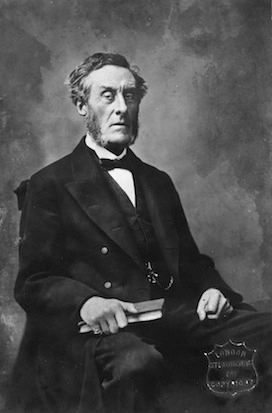Historical fiction is sometimes accused of being remote from modern concerns, a flight towards nostalgia and fantasy. It’s not an accusation you can reasonably level at M.J.Carter’s historical crime novels. The first, The Strangler Vine, was set in an unsettling version of colonial India. Its sequel, The Infidel Stain, takes place three years later in 1841, in a London that Dickens would have recognised. The story follows the subsequent careers of her two main characters — the louche and mysterious Jeremiah Blake and his far more respectable young friend Captain William Avery, now retired from the East India Company’s army.
Blake is making his living as an inquiry agent. Viscount Allington, a politician whose evangelical outlook is clearly modelled on Lord Shaftsbury’s, hires him to look into the deaths of two printers. Blake recruits the assistance of Avery, now married, bored and living in genteel obscurity in the West Country.
It soon becomes clear that the printers were not wholly respectable, and that their stock-in-trade included pornography. They have connections to the widespread political discontent of the country: not just the respectable Anti-Corn-Law league but the Chartists, whose radical demands and working-class roots lead the authorities to suspect them of fomenting revolution.
Avery serves as the narrator, the Watson to Blake’s Holmes. Carter modifies the Holmes and Watson template by having Avery and Blake constantly arguing with each other; they bicker like an old married couple. There are ample opportunities for irony here — Blake is Avery’s intellectual superior but also his social inferior.
Both men are relative strangers in London, as Avery was in India, which allows Carter to describe the early-Victorian city to us through her narrator’s eyes. It becomes almost a character in its own right, at once unexpectedly familiar and profoundly strange, a richly specific mix of splendour and squalor.
The denouement, when it comes, strains belief, though it is in the best traditions of Victorian melodrama. As in many crime novels, however, the plot matters less than the characters, the setting and the themes.
One of the more unsettling features of this witty and unfailingly readable novel is its contemporary resonance, all the more effective for being implicit or barely stressed. There’s the sense of entitlement, for example, that skews the judgment of privileged people — an essential element in the story’s development. The impact of the Victorian printing industry on formerly independent print workers also has a disturbingly modern ring. And — through the medium of a lively Chartist meeting — Carter lets slip some apposite remarks on the dangers to society of gross inequalities of wealth.
But that was London in 1841. We have come a long way since then.
Available from the Spectator Bookshop, £12.99 Tel: 08430 600033






Comments